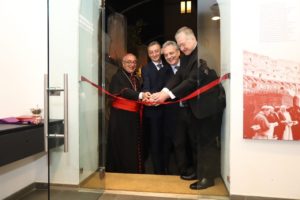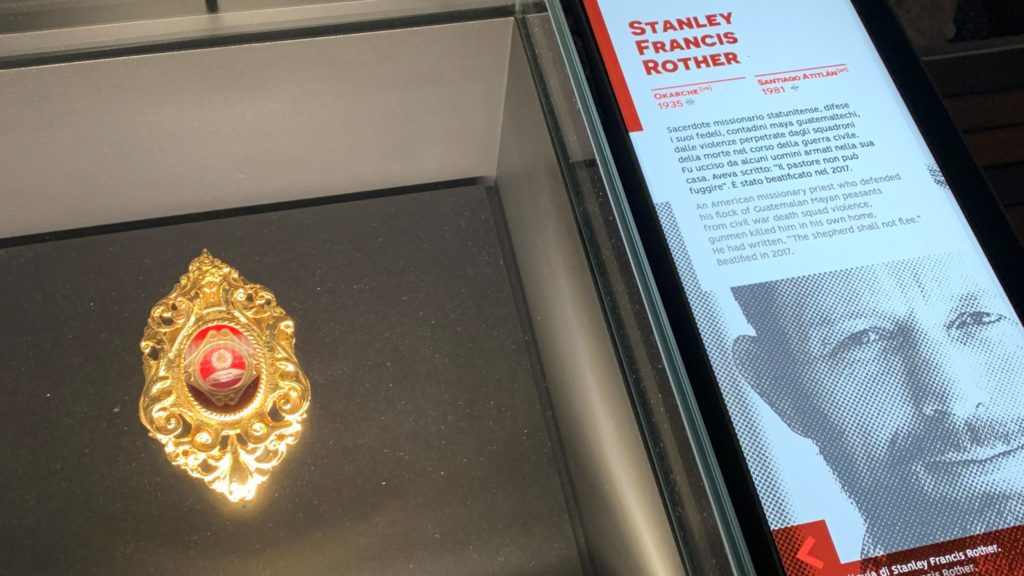Amid the remains of a pagan temple on an island in the Tiber River hangs a red chasuble worn by St. Oscar Romero of San Salvador.
Nearby there is a relic of Blessed Stanley Rother, an Oklahoma priest shot in Guatemala in 1981, and a jagged rock used by the Polish security police officers who murdered Blessed Jerzy Popieluszko in 1984.
In 2002 St. John Paul II recognized the Basilica of St. Bartholomew on Tiber Island in Rome as a shrine to the "new martyrs" of the 20th century. Shortly afterward, the Italian government began an archaeological exploration of the crypt under the church and discovered the remains of a temple dated to the third century before Christ and dedicated to Asclepius, the Greek god of medicine.
The Community of Sant'Egidio, which cares for the basilica and the shrine, hosted an event March 23 to dedicate a new exposition space among the ruins in the crypt as a museum and memorial to the new martyrs of both the 20th and 21st centuries.
The inauguration took place on the eve of St. Romero's feast day, a day the Diocese of Rome and many others around the world remember the "new martyrs" of Nazism, communism, totalitarianism and anti-Christian persecution.
Cardinal Blase J. Cupich of Chicago, titular cardinal of the church, told those gathered, "Here in this sacred space we remember the stories and honor the relics of those, who while they come from different lands and cultures, share the common bond that the Gospel of Jesus Christ gave birth to their martyrdom."
And, he thanked the community for including Blessed Rother, "the first martyr from the United States and the first priest born in the United States to be beatified."

Archbishop Fabio Fabene, secretary of the Vatican Dicastery for the Causes of Saints, said the fact that the basilica hosts a relic of the Apostle Bartholomew as well as a breviary used by Father Jacques Hamel, killed in France in 2016, is a reminder that "martyrdom has been a reality of the church from the beginning" and is a "sign of the greatest love a Christian can have for Christ and for his brothers and sisters."
He also announced that as part of the preparations for the Holy Year 2025, the dicastery is instituting a "new martyrs" commission that will gather documentation about Christians who have given their lives for their faith in the 20th and 21st centuries.
Cardinal Angelo De Donatis, the papal vicar for Rome, said it is important that the memorial is in Rome so that "every pilgrim who comes to pray at the tombs of the martyrs St. Peter and St. Paul will have a reminder that there are still people giving their lives for their faith today."
Like other speakers, Andrea Riccardi, founder of the Sant'Egidio Community, noted that the shrine and memorial illustrate what Pope Francis has called the "ecumenism of blood," or the unity Christians have experienced in being persecuted for their faith in Christ and not for their belonging to any one denomination.
The martyrs honored at the basilica are Catholic, Orthodox, Anglican and Protestant.
"The martyrs confirm that the heart of the Christian faith is giving one's life for others," Riccardi said.
Cardinal Cupich said they "reveal the unity" of Christians across time and space, and "they have the power to rebuild fraternity among all peoples."

